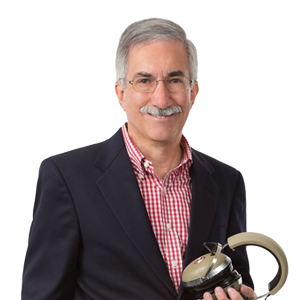WASHINGTON, DC—As GeoBroadcast Solutions seeks FCC approval to broadcast original, localized content via FM booster stations, a group of 24 radio broadcast licensees represented by Womble Bond Dickinson telecom attorney John Garziglia says the same opportunities also should apply to FM translators. The licensees, known collectively as Broadcasters for Limited Program Orientation, have filed a petition with the FCC asking that the opportunities to broadcast different or original geo-targeted programming under consideration for FM boosters also be extended to FM translator stations.
Garziglia joined Radio + Television Business Report’s In Focus podcast to discuss the proposal and issues surrounding geo-targeted programming.
“This would enable them to do two or more program streams, depending on the number of FM translators,” he tells RBR+TVBR Editor-in-Chief Adam R Jacobson on the podcast.
Such programming could benefit local audiences and broadcasters in a number of ways—for example, stations could air two or more high school sports events, religious services or city council meetings taking place simultaneously. Or one town could receive hyper-local programming via the FM translator while the rest of the market receives the normal programming on the main AM station.
Garziglia said this idea for FM translators has been around since 2006, but with the GeoBroadcast Solutions proposal on the table, the time was right to revisit it. He added that it only makes sense that translators be given the same opportunities as boosters.
“FM boosters and FM translators are both secondary services, and both are ruled by the same FCC rules and regulations,” he said. Both carry a signal from a primary station to radio listeners. So the same geo-targeting rules and opportunities should apply to both, Garziglia said.
Click here to listen to “RBR+TVBR INFocus Podcast: John Garziglia”.
Also, click here to read “Radio World Reports on John Garziglia FM Translator Petition to FCC”.
John Garziglia represents radio and television broadcasters, offering personalized assistance in all areas of communications and telecommunications law including transactional and contract negotiations for broadcast station mergers and acquisitions, the securing of financing, governmental auctions of new frequencies, license renewals, new stations applications, facility changes, facility upgrades, licensing, and compliance with FCC rules, regulations and policies.



